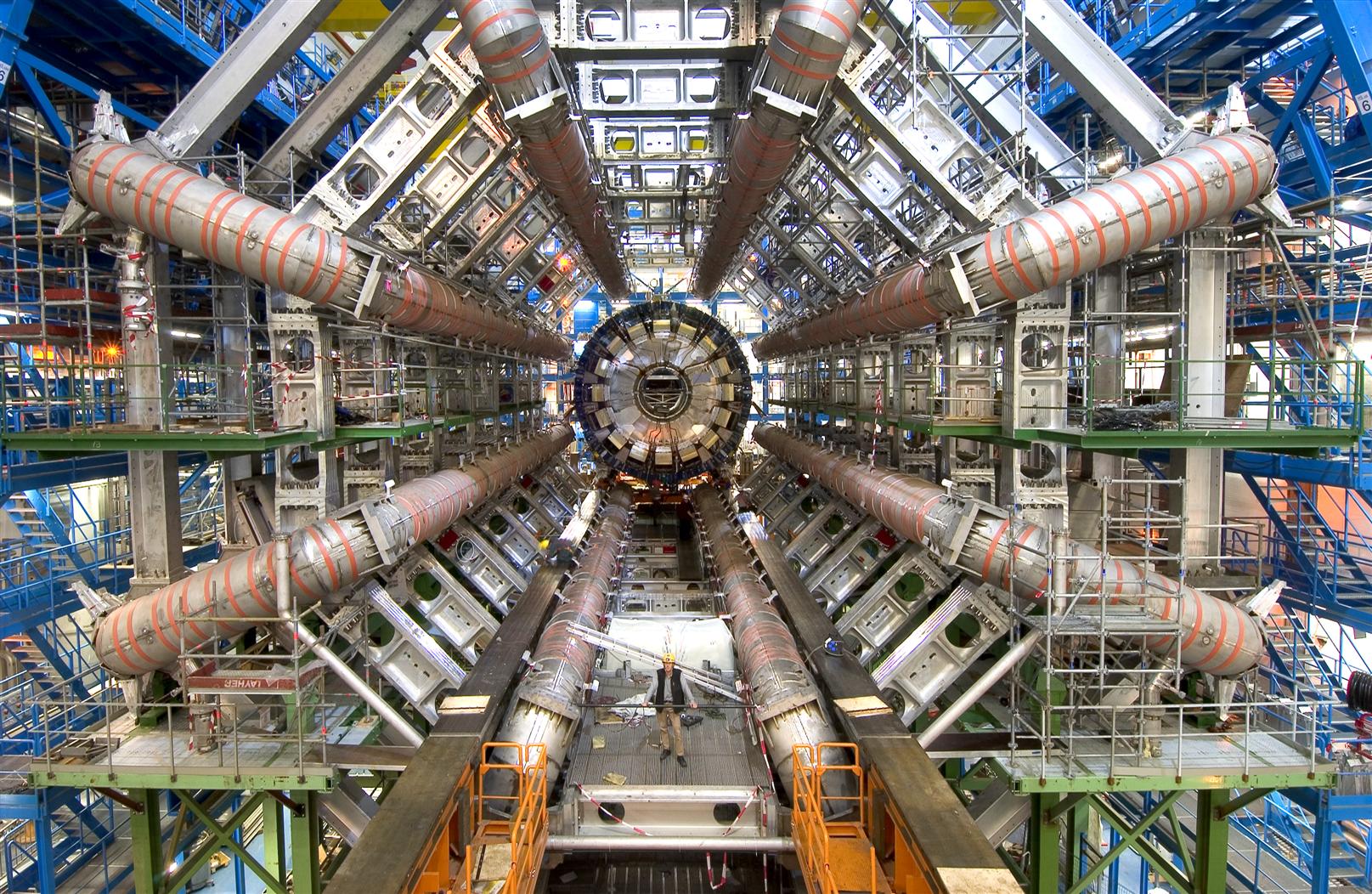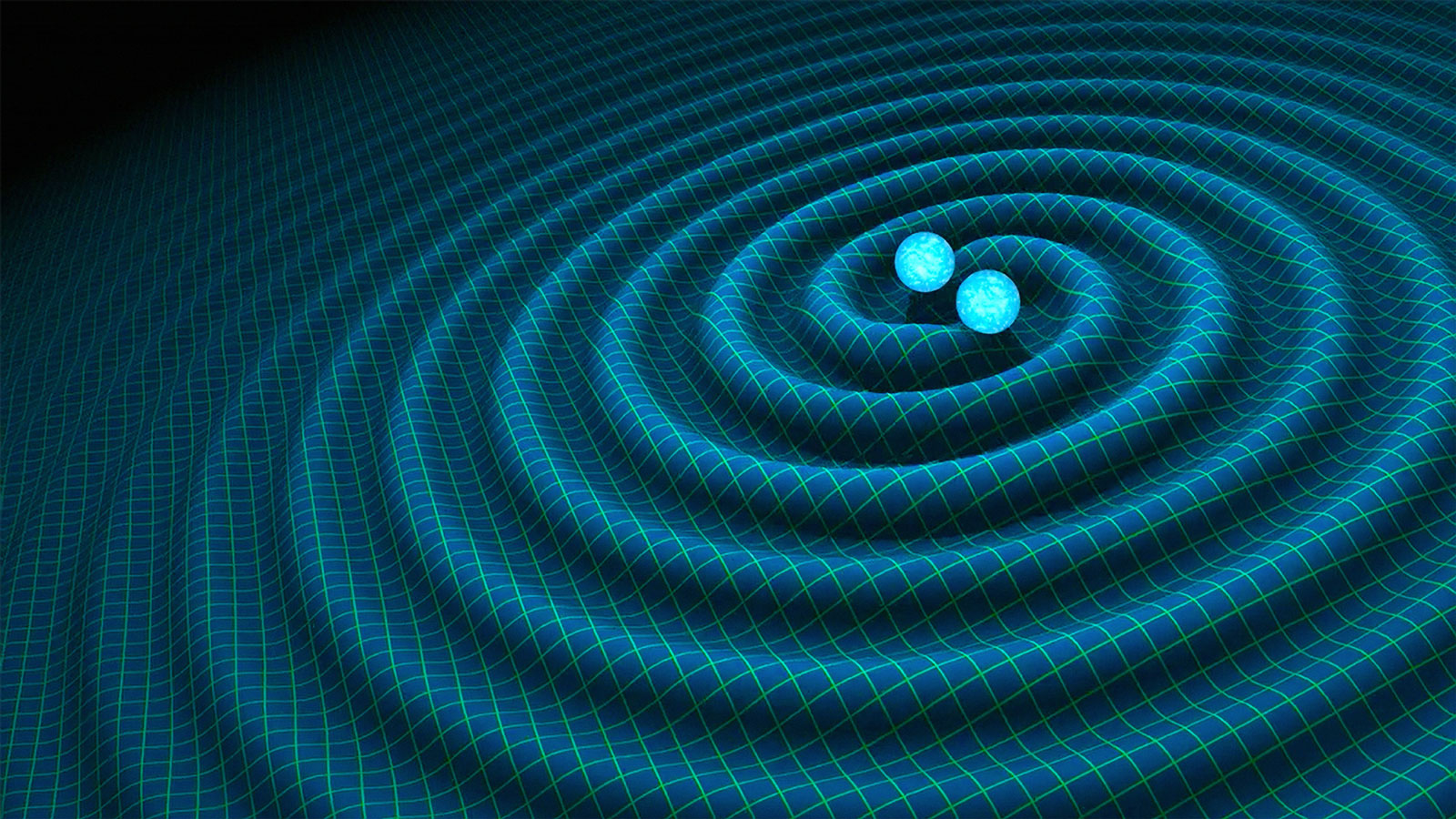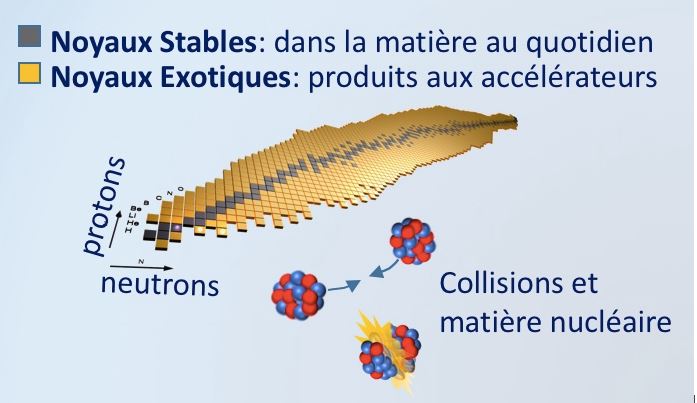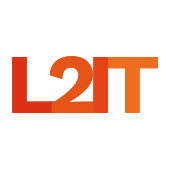The objects of study at L2IT are the two infinites
– the infinitely small and the infinitely large –
and the relationships between the phenomena that govern each of them.
Our research focuses on four themes:

Particle physics
It is the study of the elementary components of matter and their interactions. The discovery of the Higgs boson in 2012 gives us experimental access to the so-called scalar sector of the Standard Model of particle physics. We are exploiting this new route to measure precisely the interactions of the Higgs boson and thus test this key sector of the model.

Gravitational waves
These are oscillations in the curvature of space-time. Since their discovery in 2016, they offer a new way of probing the Universe.

Nuclear physics
The nuclear reactions at GANIL’s accelerators enable us to study the structure and dynamics of nuclear systems under extreme conditions of isospin (neutron/proton asymmetry), density and temperature. These investigations give us the opportunity to understand the nuclear interaction and its equation of state. They are also important for studying the properties of the matter that makes up the interior of neutron stars and supernovas, including the phenomena associated with them (emission of gravitational waves and neutrinos, nucleosynthesis of heavy elements).

Computing, algorithms and data
The experimental study of the two infinities relies on sophisticated instruments that produce large quantities of measurements – and therefore data. Algorithms and computation are essential tools for transforming this data into scientific results.
The L2IT – a digital and connected laboratory:
Our defining feature
Focus on novel analysis methods.
Theoretical and numerical aspects – modelling, simulation, data analysis – are the key activities of L2IT. We develop these innovative aspects in our field in close collaboration with experts in the leading establishments in the fields of digital technology, artificial intelligence and physics and the sciences of the universe based in Toulouse.
Partnerships and equipements
Major international collaborations.
We pursue our research within major international collaborations. Through these collaborations, we actively contribute to the operation of major research instruments and to the analysis of data from these instruments. These instruments include the ATLAS experiment at the LHC at CERN, the Virgo gravitational wave detector at EGO, the LISA space gravitational wave detector project and the FAZIA experiment at the GANIL in Caen. For our computing activities we benefit from the infrastructure and support of the IN2P3 Computing Centre in Lyon.
Teaching
Doctoral school in Matter sciences.
The L2IT teaches in the “Science de la matière” (SDM) doctoral school at the Université Toulouse III – Paul Sabatier.

